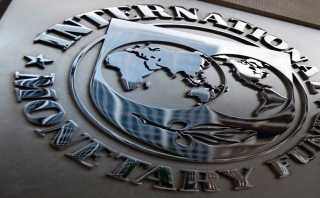Analytics, Economics, EU – Baltic States, Financial Services, Latvia, Markets and Companies
International Internet Magazine. Baltic States news & analytics
Thursday, 22.05.2025, 07:54
Latvia's economic growth in 2017 surprises with strong and broad-based upswing
 Print version
Print version |
|---|
The acceleration has been driven by a rebound in investment due to recovery
in business investment and faster EU funds absorption, robust private
consumption, and a pick-up in exports supported by a favorable external
environment, IMF experts said.
While average inflation has reached 2.9%, the fiscal and current account
deficits remain moderate, public debt is low, and unemployment continues to
fall.
"The medium-term outlook is positive, and risks must remain
well-managed. Growth is expected to remain strong, and gradually converge to
its potential rate of 3%. To ensure that the economy smoothly navigates the
cyclical upswing, maintaining a prudent policy mix will be key to avoid the
accumulation of imbalances and prevent rapid wage growth from eroding
competitiveness," the IMF said.
Latvian banks are well capitalized and liquid. Continued implementation of
macro prudential regulations and vigilant supervision has helped preserve
financial stability, and is vital to ensure Latvia’s ongoing role as a regional
financial center. Nonetheless, despite the favorable macroeconomic conditions
and low interest rate environment, credit growth remains subdued as banks’ cautious
supply and firms’ and households’ tepid demand for loans prevent the banking
system from providing more support to the economy, according to experts.
Commenting on the 2018 budget, the IMF said that it is in line with
Latvia’s EU commitments. Measures taken to partially compensate for the loss of
revenues resulting from the recent tax reform are a welcome step by the
authorities to maintain prudent fiscal policies and contain the growth of the
deficit.
The IMF reported that the cyclical recovery is an opportune time to
redouble reform efforts to support sustainable long-term growth and mitigate
the impact of coming economic headwinds, including demographic challenges.
Structural and institutional reforms should focus on fostering labor supply and
lowering structural unemployment, enhancing productivity growth and ensuring
efficient financial intermediation, including legal and insolvency reforms and
further increasing access to finance, and reducing the shadow economy.








 «The Baltic Course» Is Sold and Stays in Business!
«The Baltic Course» Is Sold and Stays in Business!

